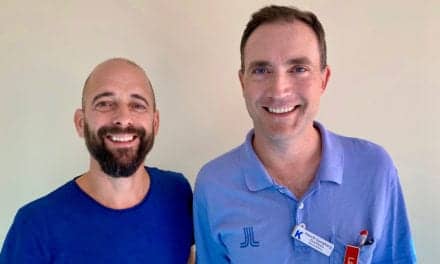Caris Life Sciences, Irving, Texas, has entered into a strategic collaboration with biopharmaceutical developer Debiopharm International, Lausanne, Switzerland, for the development of a companion diagnostic using its newly launched whole-transcriptome sequencing assay for mRNA analysis, MI Transcriptome.
In May, FDA granted breakthrough device status to the MI Transcriptome assay, which detects rare fibroblast growth factor receptor (FGFR1,FGFR2, and FGFR3) fusion events.
“This agreement supports our vision for optimizing the detection of rare fusion events using RNA, and building value on our multiplatform tumor profiling approach,” says W. Michael Korn, MD, chief medical officer at Caris Life Sciences. “We continue to develop novel technologies to provide the most comprehensive molecular profiling possible.”
Under the agreement, MI Transcriptome will be used to identify eligible patients for Debiopharm’s Fuze Phase II pivotal trial of Debio 1347, a selective FGFR inhibitor that is being evaluated for the treatment of patients with non-central nervous system solid tumors that have a specific FGFR gene fusion. Debio 1347 received fast-track designation from FDA earlier this year.
In addition to developing a MI Transcriptome companion diagnostic, Caris will use its trials service to improve the identification of patients eligible to enroll in the Fuze trial, analyzing the tens of thousands of patients profiled by Caris Life Sciences each year. The Fuze study is an open-label, blinded, multicenter, pan-cancer international Phase II basket trial that plans to enroll 125 patients across more than 20 countries.
“This collaboration represents a key milestone in the advancement of a new tumor-agnostic approach,” explains Angela Zubel, MD, PhD, chief development officer at Debiopharm. “We believe that a whole transcriptome assay is particularly relevant to detect oncogene fusions and to identify tumor expression profiles that could benefit from Debio 1347 therapy.”
“When investigating novel targeted therapies in small, genetically-defined subpopulations, which can be found in a broad range of cancers, it is critical that molecular screening be conducted in the broadest possible group of potential trial participants,” adds Keith Flaherty, MD, director of clinical research at the Massachusetts General Hospital Cancer Center.
“Kinase fusions across multiple histologies have become very important targets in precision oncology, but we know that detection methods based purely on DNA can unfortunately miss some patients who might otherwise benefit from these therapies,” says David Hyman, MD, chief of early drug development at Memorial Sloan Kettering Cancer Center. “We are excited to see the increasing adoption of RNA-based, unbiased screening technologies in the clinic.”
Unlike methods based on DNA alone, MI Transcriptome RNA profiling has the ability to detect any fusion event, independent of breakpoint locations or fusion partners. It can distinguish among different fusion or rearrangement types and has the potential to discover previously uncharacterized events, which is critical for identifying every potential patient who may benefit from targeted therapies.
MI Transcriptome also uses the capabilities of high-throughput transcript sequencing to gain insight into the gene expression profiles of patients’ tumors. The assay builds upon Caris’ offering of a comprehensive tumor profiling approach, which assesses DNA, RNA, and proteins for every patient.
For further information, visit Caris Life Sciences.





